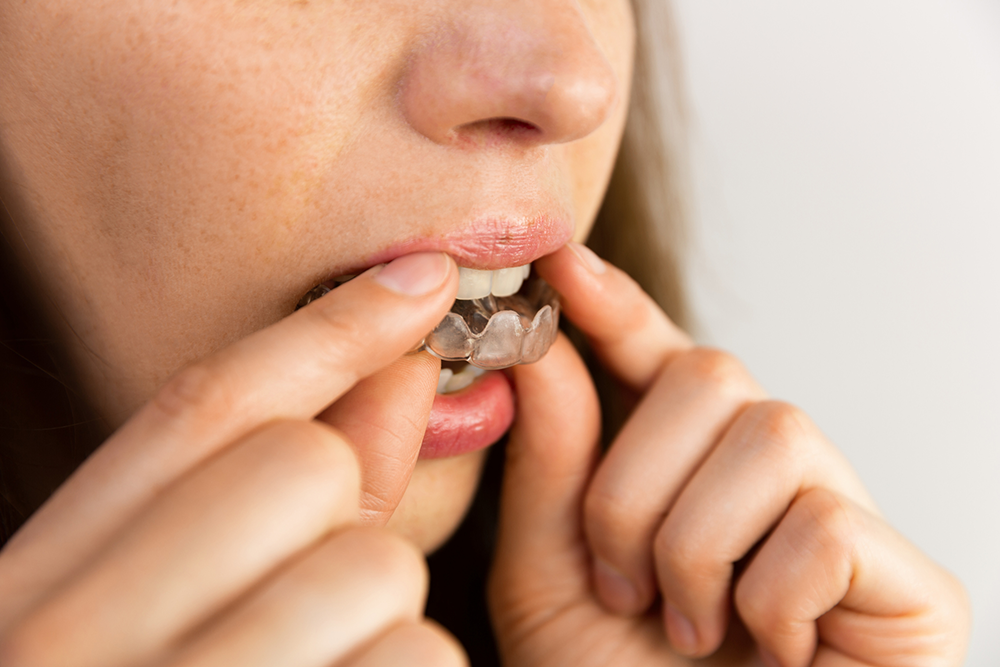
Stress, situational anxiety, moments of intense concentration – these are all common symptoms of bruxism. Clenching or grinding of the teeth, bruxism, is more common than you think. Whether it seems constant or only on occasion, we all experience stress, anxiety and moments of intense concentration at some point in our lives. But did you know bruxing can wreak havoc on your teeth and gums?
Most dental patients, when asked if they clench or grind their teeth, respond quickly with a firm “No.” However, when they were asked to pay attention throughout the course of the day to see if they noticed any clenching or grinding, almost all of the patients responded with a surprised “Yes, I actually do!” Studies have shown that if someone is bruxing during the day, they are most likely bruxing even more at night. It is our body’s natural way of releasing stress subconsciously while resting.
Signs & Symptoms
Here are some signs and symptoms of bruxism that your dentist and hygienists will look for at Dental Design.
- Teeth grinding or clenching, either during the day or possibly at night which could wake your sleep partner
- Worn tooth enamel, exposing deeper layers of your tooth
- Teeth that are flattened, fractured, chipped or loose
- Tired or tight jaw muscles, or a jaw that won’t open or close completely
- Increased tooth pain or sensitivity, generalized throughout the mouth or localized to a specific tooth
- Jaw, neck, ear or face pain or soreness
- Dull headache starting in the temples
- Evidence of chewing on the inside of your cheek
- Sleep disruption
On occasion, bruxing can cause serious complications like: damage to tooth structure, change in bite or occlusion which can cause severe jaw pain and headaches or clicking and popping when talking or eating.
Treatment With A Night Guard
Simple, easy cost effective treatment with a night guard can help eliminate the symptoms of bruxism. A night guard, also called dental guard, mouth guard, bite splint, or bite plate works by putting a barrier between your teeth. When you bite together, clench or grind the guard helps by providing a cushion between your jaws. This helps to prevent pain in your face, jaw and teeth and helps protect the outer enamel layer of your teeth from being worn down.
A night guard is one of the best investments you can make to help protect your teeth and jaw. There are several different types of guards that can be made in the office to best fit your needs. There are soft night guards, hard night guards, full arch and partial splints. The doctor will ask some questions to help determine which night guard will be best for your needs. We will also follow up to make sure your guard is fitting and working properly.



